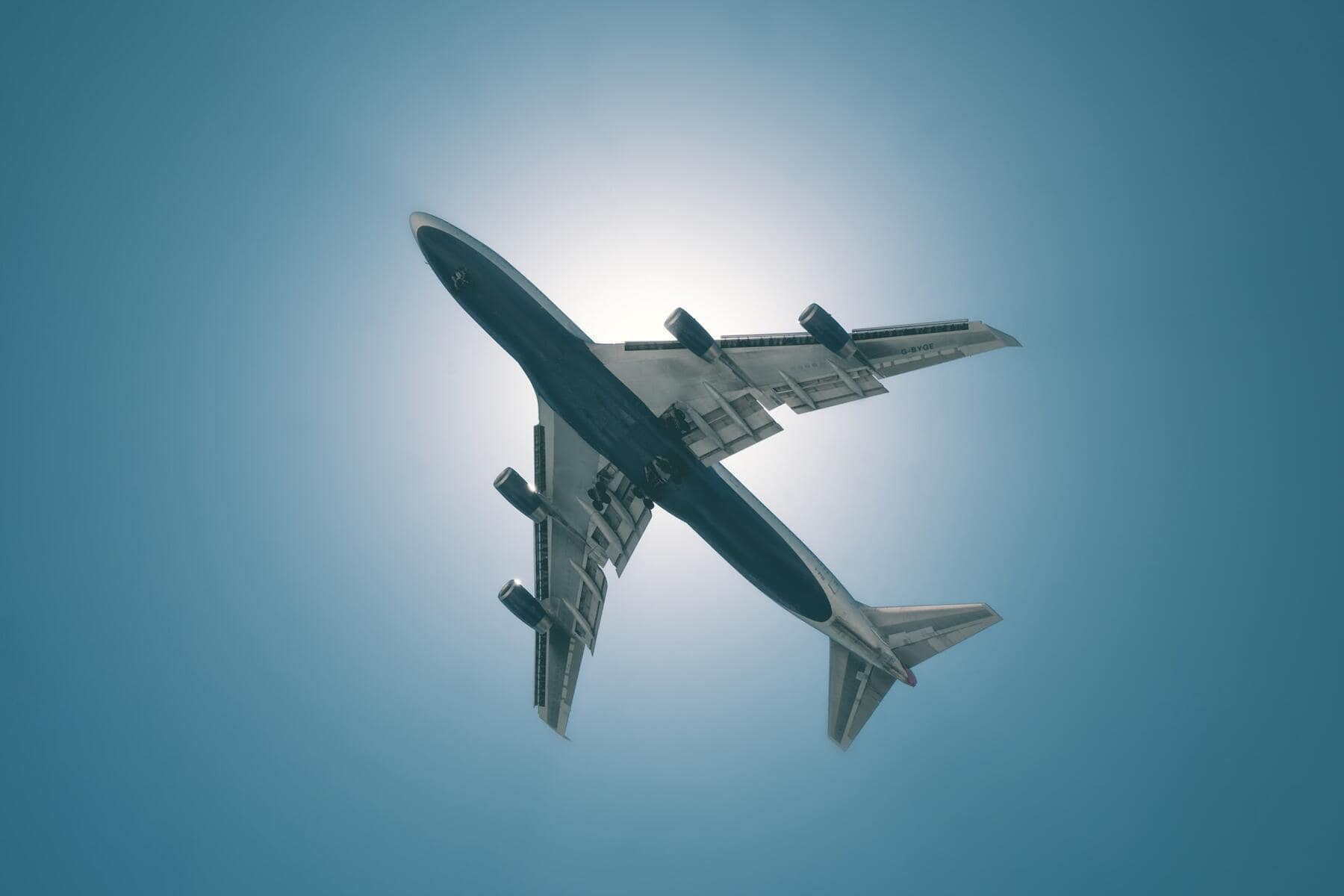In a nutshell, yes. But it's a long and complicated process.
For the past year, the U.S. Department of Transportation (DoT) has been trying to keep airlines in line. In its most recent attempt to make air travel fuss-free, it launched a family seating dashboard to point out airlines that offer free seating to families. This came after President Biden slammed airlines for junk fees.
Related: United Finally Lets Families Sit Together Without a Fee. But These Airlines Still Don’t
There are constant pushes from the department to protect fliers’ rights. During the pandemic, when many flights were grounded, a common complaint was a refusal from airlines to refund tickets. Rather than cash, passengers were frequently offered vouchers. However, the department made it clear: “Under U.S. law, airlines and ticket agents have a legal obligation to refund consumers if the airline cancels or significantly changes a flight to, from, and within the United States, and the passenger does not wish to accept the alternative offered. It is unlawful for an airline to refuse refunds and instead provide vouchers to such consumers.”
And in 2022, the agency got airlines to offer more than $600 million in refunds to passengers due to flight cancellations or disruptions. Airlines were fined for delays, too.
An airline customer service dashboard was launched in 2022 to inform travelers what they are owed if an airline changes or cancels flights. A proposed rule has also been considered since August that will expand consumer rights and make timely refunds a reality for fliers.
Recommended Fodor’s Video
Last summer and winter, flight disruptions left travelers stranded; lost luggage became another bone of contention. On domestic flights, the maximum liability for airlines is $3,800 per passenger and on international flights, the amount comes out to be $1,700 per passenger.
Related: There Are New Rules for Flying—What to Know About the Refund and Reimbursement Process
Yes, You Can Still File a Lawsuit
Passengers don’t always find resolutions by contacting the airline and that’s when some take the legal route. Southwest has found itself in a pickle after its humongous travel debacle last winter. Thousands of flights were canceled over the winter break. One impacted flier has filed a class-action lawsuit asking for $5,000,000 in refunds.
Apart from disruptions, cancellations, and overbooking, you can also seek compensation for discrimination, negligence, or safety issues.
Last June, a teen died on an American Airlines flight after he suffered cardiac arrest. His mother has now filed a lawsuit in a New York district court claiming that the defibrillator on the plane wasn’t charged and the airline is liable for carelessness. There are other serious incidents that have brought lawsuits against airlines. Losing human remains, misidentifying a man who was later jailed for 17 days, and the death of a woman who fell from her wheelchair while boarding, are some recent examples.
Trial attorney Andrew Pickett points out that the fine print in the airline’s contract of carriage will determine the compensation a passenger can recover. “Compensation awarded to passengers in airline lawsuits usually depends upon the case type being litigated. Passengers may recover damages related to lost wages, medical expenses, pain and suffering, emotional distress, inconvenience, and punitive damages.”
It’s not just airlines, though. American manufacturer Boeing is being sued by families of plane crash victims from the Ethiopian Airlines and Lion Air flights that plummeted due to faulty aircraft mechanisms.
Related: 10 Worst Plane Crashes in the Last Decade
How to File a Lawsuit
DoT has specified the rights of fliers in detail, including how to file a complaint. The first step is always to talk to the airline—start with an agent at the airport to help you out. If that fails, write to the airline and try to come to a settlement that’s suitable for you. If the airline isn’t ready to resolve your problem, you can file a complaint with DoT. The last resort, the agency says, is small claims court, which is a less intimidating option where you can represent yourself.
Small claims court is used for a lower figure compensation and you don’t need a lawyer during hearings. However, it is beneficial to consult an attorney to understand the procedure, to learn if you have a strong case, and to understand how to best argue it to the judge. You need to keep all records, including communication with the airline, tickets, and expense receipts.
The DoT website warns, “Expenses such as time lost from work are not usually recoverable. In some situations, it may be more effective, less troublesome, and quicker to retain an attorney, or to seek assistance from another source, such as a consumer affairs office or governmental agency.”
The Federal Aviation Administration (FAA), which is part of DoT, also looks at complaints. Discrimination complaints can be filed here and safety issues can be reported here.
Ben Michael, an attorney at M & A Criminal Defense Attorneys, tells Fodor’s that there are several layers of agencies you need to approach before you pursue legal action. “This is both because of the general requirement to exhaust all other potential remedies before filing lawsuits against companies in most cases, as well as the requirement to submit any complaints against airlines to the U.S. Department of Transportation.”
The DoT processes can take months or years and you have a lot less say in the matter than a lawsuit, he adds.
If you are inclined to file a civil lawsuit, talk to an aviation attorney and understand the process. It will take time, effort, money, and dedication, Andrew Pickett says. “The time it takes to resolve an airline lawsuit varies depending on the jurisdiction and complexity of the case. It is important to note that airline cases, once filed, can take several years to resolve.”
Different Regions, Different Rules
International laws will be taken into account when you’re flying an airline that’s not based in the U.S. Fortunately for fliers, the European Union states clearly passenger rights. Raj Mahal, the founder of travel app PlanMoreTrips, is currently in the process of bringing Vueling to task for losing his luggage in June 2022.
Under the E.U. regulations, an airline reimburses you up to €1,300 if it loses your luggage, but he tells us that the Spanish low-cost carrier made it difficult to file a claim. Once he managed, it was denied. “They know most people are not going to fight them and go to court, but I found a Spanish company called reclamador.es and they specialize in this kind of stuff.” The company sued Vueling in a Spanish court, but the process is really slow and may take up to two years. The company will take 30% if they win the case, but right now, Mahal doesn’t need to pay anything.
He recommends others take the same route if airlines refuse such claims—they are in violation of the law.
But you should be ready for a lengthy battle.
In the U.K., a woman successfully took on British Airways after the airline refused to compensate her in cash for her flights to Japan after the onset of the pandemic. She tried to negotiate with the airline–failing that, she represented herself in a lawsuit filed in February 2022, and won £2,523.42 in January 2023.
Notice the pattern here: it may take years to get to the finish line. And you will need to dig up laws, hire a lawyer, and wait. But it’s doable.





I have always wondered about non-refundable tickets. If you fail to use your ticket and lose your money, fine, but a portion of that ticket is taxes. I would think that the taxes and most fees on that ticket should still be refundable.